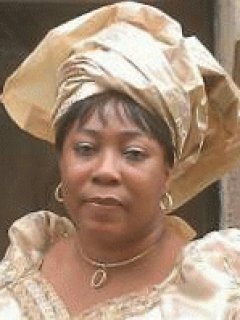Nigeria is a country you cannot ignore if you're interested in African markets. Its sheer size — population of 140 million (2006 census) — and the fact that it accounts for a quarter of West Africa's people make it a huge market for diverse consumer goods.
It is no wonder that global brands and multinationals are adequately represented locally. Unilever, Procter & Gamble, Guinness, British American Tobacco, etc., are all very visible locally.
The exit of the military and the return to democratic governance since 1999 has created a peaceful socio-political climate (except of course in the Niger-Delta) that has encouraged and enhanced business growth.
The current climate has also encouraged the growth of new Nigerian companies with nationally respected brands, such as the Dangote Group (FMCG) and Globacom (telecoms).
The telecom industry is quite vibrant, as is banking, where a recent recapitalization and consolidation exercise to sanitize and strengthen the financial sector has resulted in the surviving 25 banks growing even more aggressively.
Nigerians are generally receptive to new products. They love to experiment, especially when a new product serves a very functional need, is readily available and affordable. After all, there is not much money in circulation among the dominant lower socio-economic groups.
The above is, of course, good news for researchers as players in the various industries often seek their services. Companies want not just to stay abreast of consumer expectations and needs. They also want to keep ahead of their rivals as the market becomes increasingly dynamic and competitive.
Research Service
The demand for research has, of course, encouraged the growth of the local research industry. Today, there are several research agencies manned by experienced professionals as well as an umbrella association: The Nigerian Marketing Research Association (NIMRA).
Some international agencies also have local presence. AC Nielsen comes readily to mind.
Most of the local agencies choose to offer the full complement of research services. Specialization is still a novel idea. Qualitative research has grown beyond focus groups and depth interviews.
Ethnographic research is becoming more popular as increasing numbers of clients seek to experience the consumer world first hand. Appreciation of consumer immersion visits is growing, too.
Blogging and online FGDs are, however, still, possibilities for the future.
The diversity of Nigeria's ethnic make up (approximately 400 ethnic groups and languages) makes it imperative that a foreign agency works in collaboration with a committed local agency that understands the socio-cultural environment and peculiarities in culture from one group to the other.
What to expect
When planning groups, expect there not to be any electricity supply from the national grid and, if there is any light, that it will go off unexpectedly right in the middle of your group. Venues will, however, be prepared for this eventuality and arrange a back-up source.
The average Nigerian has not got much respect for time. This means that a respondent who chooses to drive herself to a venue might arrive up to two hours late. The simple solution, of course, is to tell respondents to arrive an hour early.
Most groups are still held in hotels rather than viewing facilities. At best there may be one or two commercial viewing facilities in Lagos but none outside.
In some Northern states, discussions with women are often held in respondents" homes. Women visiting hotels goes against the prevailing code of conduct.
You will, however, get a team of happy, willing local volunteers for your project. The average Nigerian professional is aware that the nation's image has taken a lot of bashing thanks to the activities of fraudsters (in local parlance 419ers). You are, therefore, likely to find local respondents eager to project a more positive image of the nation and build strong, lasting business relationships with your agency.
Respondents
Nigerians are known for their exceptional warmth and friendliness. After all, we are the happiest people on the planet (World Values Survey); able to stare adversity in the face and still have a lot to smile about.
In spite of our socio-cultural diversity, Nigerians share a sense of national pride. Here, we all speak football. And talking about the exploits of the national team or the progress of Nigerian stars with popular European clubs will get the respondents relaxed and raring to go be they male or female.
Another ice breaker for the warm-up is the fact that Aliko Dangote, a Nigerian who epitomizes hard work, made Forbes's world rich list. It's a feat that has inspired the everyday, struggling Nigerian.
Respondents are generally not too demanding and are usually happy to get a respectable gift. Mothers for instance are delighted to get a beautifully crafted dinner set, an iron or other fairly affordable home appliances rather than cash.
For a qualitative study, look beyond Lagos — even though it's the most populous city — to at least two other locations; one in the East and another in the North. A word of warning: The Niger Delta region is a no-go area currently best avoided. I hope, though, that overall I've encouraged readers to carry out research in Nigeria. See you soon in Lagos!


